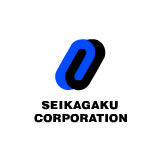预约演示
更新于:2025-11-23

Tenri University
更新于:2025-11-23
概览
标签
皮肤和肌肉骨骼疾病
免疫系统疾病
聚合物
多糖药物
关联
1
项与 Tenri University 相关的药物靶点- |
作用机制- |
在研机构 |
原研机构 |
非在研适应症- |
最高研发阶段批准上市 |
首次获批国家/地区 日本 |
首次获批日期1986-11-29 |
100 项与 Tenri University 相关的临床结果
登录后查看更多信息
0 项与 Tenri University 相关的专利(医药)
登录后查看更多信息
137
项与 Tenri University 相关的文献(医药)2026-02-01·DIAGNOSTIC MICROBIOLOGY AND INFECTIOUS DISEASE
In vitro activity of essential antimicrobial agents, including ceftazidime/avibactam, imipenem/relebactam, and cefiderocol, against carbapenem-resistant Gram-negative bacteria primarily harboring the IMP-type carbapenemase gene in the Kinki region of Japan
Article
作者: Komatsu, Masaru ; Kuchibiro, Tomokazu ; Sawa, Kana ; Niki, Makoto ; Nakamura, Akihiro ; Yamasaki, Katsutoshi ; Nakamura, Tatsuya
OBJECTIVE:
In cases of infections caused by multidrug-resistant Gram-negative bacilli (MRGNB), the efficacy of various antimicrobial agents may be limited due to antimicrobial resistance. This study evaluated the antimicrobial activity of various antimicrobials, principally novel beta-lactam beta-lactamase inhibitor combinations, against MRGNB prevalent in the Kinki region of Japan.
METHODS:
A total of 207 strains were utilized in the study, encompassing 108 carbapenemase-producing Enterobacterales (CPE) strains, 9 carbapenemase-non-producing carbapenem-resistant Enterobacterales (non-CP-CRE) strains, 73 carbapenem-resistant Pseudomonas aeruginosa (CRPA) strains, and 17 carbapenem-resistant Acinetobacter spp. (CRA) strains. These strains were obtained from the Study of Bacterial Resistance in the Kinki Region of Japan. Antimicrobial susceptibility testing was assessed via broth microdilution, with MICs determined according to the Clinical and Laboratory Standards Institute standards.
RESULTS:
The MIC50/MIC90 values (in μg/mL) for each antimicrobial agent were determined for the CPE, non-CP-CRE, CRPA, and CRA strains. The following agents demonstrated activity: ceftazidime/avibactam (CAZ/AVI) (16/>16, 2/8, 8/16, 16/>16), piperacillin/tazobactam (8/>64, >64/>64, 64/>64, 8/>64), ceftolozane/tazobactam (CTLZ/TAZ) (>32/>32, 16/>32, 8/>32, >32/>32), imipenem/relebactam (IPM/REL) (0.25/4, 1/2, 8/>8, >8/>8), tigecycline (≤0.5/2, 1/8, >8/>8, ≤0.5/1), colistin (1/2, 1/8, 1/1, 1/2), and cefiderocol (0.25/2, 1/16, 1/8, 0.5/32).
CONCLUSION:
The MIC distributions for colistin, tigecycline, and cefiderocol were narrow across resistant strains, indicating consistent activity. Furthermore, the MIC distributions of CAZ/AVI and IPM/REL exhibited a narrow range of concentrations against non-CP-CRE and non-CP-CRPA, respectively. In contrast, CTLZ/TAZ exhibited a similarly narrow distribution against non-CP-CRPA. These findings suggest that these antimicrobials effectively treat infections caused by MRGNB.
2025-06-01·MEDICINE & SCIENCE IN SPORTS & EXERCISE
Genome-Wide Association Study on Muscle Stiffness Identified Novel Locus for Predisposition to Muscle Strain Injury
Article
作者: KUMAGAI, HIROSHI ; FUKU, NORIYUKI ; ZEMPO, HIROFUMI ; FUKU, MIZUHO ; YOSHIHARA, TOSHINORI ; MIYAMOTO-MIKAMI, ERI ; KIKUCHI, NAOKI ; TAKARAGAWA, MIZUKI ; MIYAMOTO, NAOKAZU ; KAMIYA, NOBUHIRO ; HIRATA, KOSUKE
ABSTRACT:
Purpose:
We aimed to screen the entire genome for genetic variants associated with passive muscle stiffness, which has been suggested as a risk factor for muscle strain injury.
Methods:
This genome-wide association study (GWAS) on passive muscle stiffness included 350 physically active young Japanese individuals. Three hamstring constituents were measured using ultrasound shear wave elastography. Skeletal muscle transcriptomes were compared across the genotypes of GWAS-identified variants in 48 healthy Japanese individuals. Association between GWAS-identified variants and history of muscle strain injury was examined in 1428 Japanese athletes.
Results:
Two loci on chromosome 11 demonstrated a genome-wide significant association with passive muscle stiffness of the biceps femoris long head (rs12807854 T/C: P = 5.19 × 10−10, rs78405694 T/C: P = 2.09 × 10−8; linear regression analysis adjusted for sex, age, and stretching exercise habits). Skeletal muscle RNA sequencing revealed significantly elevated expression of extracellular matrix-related genes in muscles carrying stiffness-increasing alleles of these variants. Among athletes, rs12807854 T/C was significantly associated with a history of muscle strain injury (P = 0.0254; logistic regression analysis adjusted for age, sex, competitive level, and main sport). Carriers of the C allele, associated with increased muscle stiffness, exhibited a heightened risk of muscle strain injury (odds ratio = 1.62; 95% confidence interval = 1.06–2.47 per C allele increase). By contrast, rs78405694 did not show a significant association with muscle strain injury in this population.
Conclusions:
A novel locus associated with passive muscle stiffness and muscle strain injury was identified. Elucidating the detailed mechanisms linking the identified locus to passive muscle stiffness may lead to the development of new strategies to prevent muscle strain injuries.
2025-04-24·INTERNATIONAL JOURNAL OF SYSTEMATIC AND EVOLUTIONARY MICROBIOLOGY
Rodentibacter abscessus sp. nov. isolated from pet hamster subcutaneous abscess
Article
作者: Nakamura, Akihiro ; Tamai, Kiyoko ; Ohkusu, Kiyofumi ; Nakahara, Tsuyoshi ; Komatsu, Masaru
Five strains related to the genus Rodentibacter were isolated from five pet hamsters kept in Japan. Isolates were genotypically and phenotypically distinct from previously described species within the genus Rodentibacter (family Pasteurellaceae). The five strains were the most genetically similar to Rodentibacter haemolyticus 1625-19T, exhibiting a 16S rRNA gene sequence similarity of 96.5%, an average nucleotide identity value of 90.8% and a digital DNA–DNA hybridization value of 42.7%. Phenotypic characteristics further distinguish the isolated strains from other Rodentibacter species. Although they share β-haemolysis capacity with R. haemolyticus, the novel strains are differentiated by their positive reactions for α-glucosidase, l-arabinose and trehalose, as well as negative reactions for β-glucuronidase, mannose, inositol and glycerol. Genotypic and phenotypic differences between the novel strains and closely related known strains suggested that we have identified a new Rodentibacter species. We propose the name Rodentibacter abscessus sp. nov. The type strain is THUN1654T with a G+C DNA content of 40.6 mol%, and it is deposited in the DSMZ Germany (DSM 118002T), KCTC Korea (KCTC 8595T) and JCM Japan (JCM 37054T).
100 项与 Tenri University 相关的药物交易
登录后查看更多信息
100 项与 Tenri University 相关的转化医学
登录后查看更多信息
组织架构
使用我们的机构树数据加速您的研究。
登录
或

管线布局
2026年03月01日管线快照
管线布局中药物为当前组织机构及其子机构作为药物机构进行统计,早期临床1期并入临床1期,临床1/2期并入临床2期,临床2/3期并入临床3期
临床前
1
登录后查看更多信息
药物交易
使用我们的药物交易数据加速您的研究。
登录
或

转化医学
使用我们的转化医学数据加速您的研究。
登录
或

营收
使用 Synapse 探索超过 36 万个组织的财务状况。
登录
或

科研基金(NIH)
访问超过 200 万项资助和基金信息,以提升您的研究之旅。
登录
或

投资
深入了解从初创企业到成熟企业的最新公司投资动态。
登录
或

融资
发掘融资趋势以验证和推进您的投资机会。
登录
或

生物医药百科问答
全新生物医药AI Agent 覆盖科研全链路,让突破性发现快人一步
立即开始免费试用!
智慧芽新药情报库是智慧芽专为生命科学人士构建的基于AI的创新药情报平台,助您全方位提升您的研发与决策效率。
立即开始数据试用!
智慧芽新药库数据也通过智慧芽数据服务平台,以API或者数据包形式对外开放,助您更加充分利用智慧芽新药情报信息。
生物序列数据库
生物药研发创新
免费使用
化学结构数据库
小分子化药研发创新
免费使用

